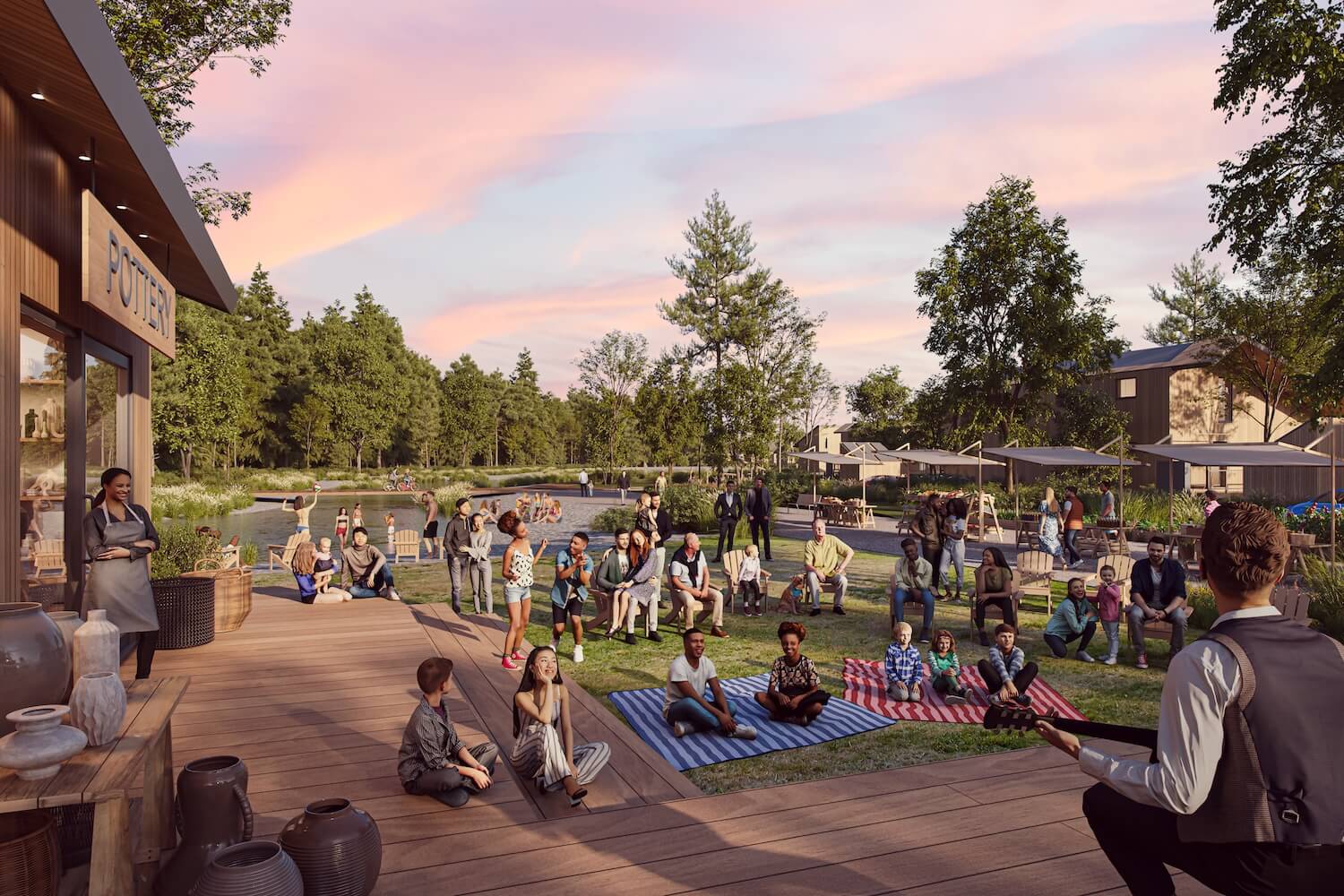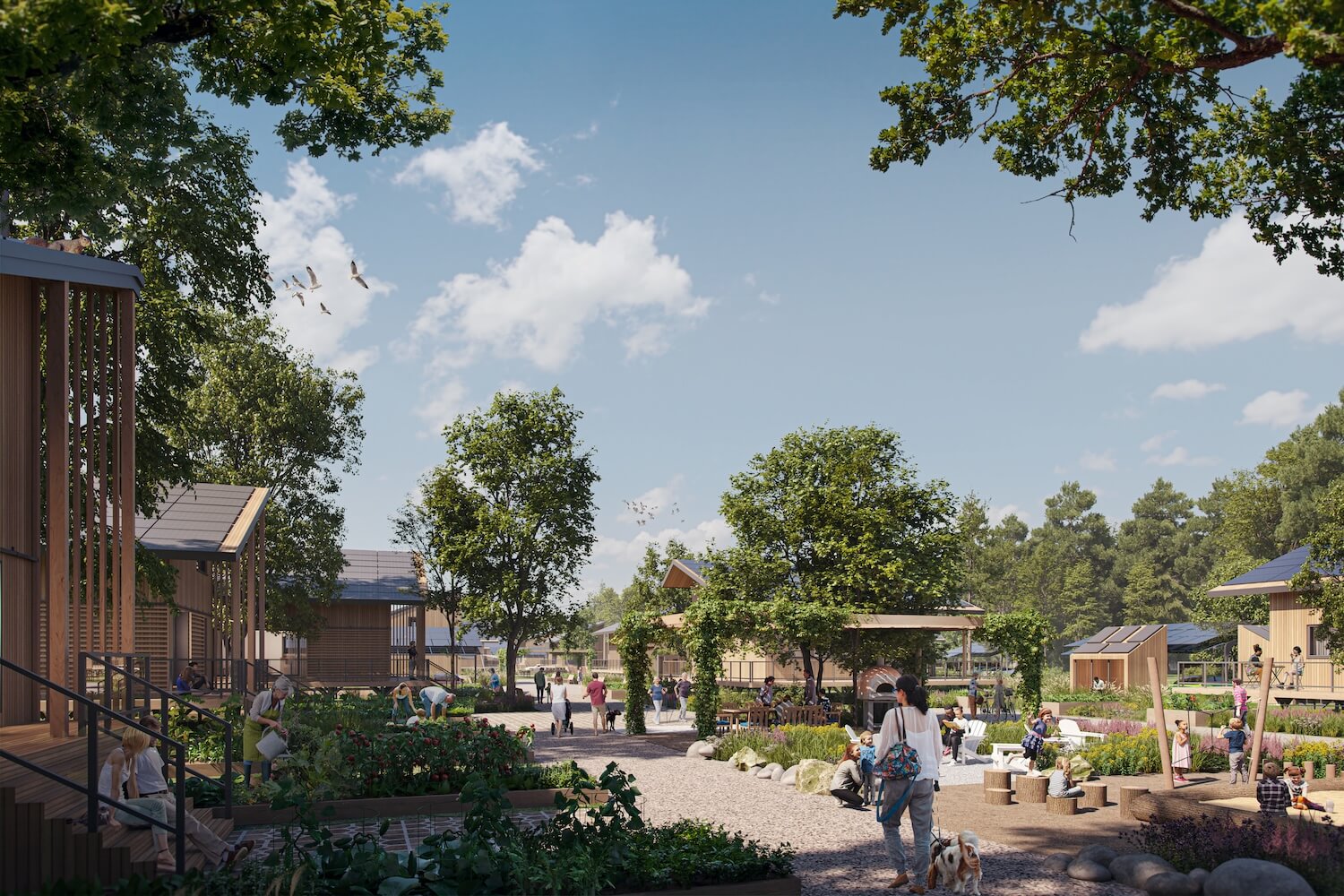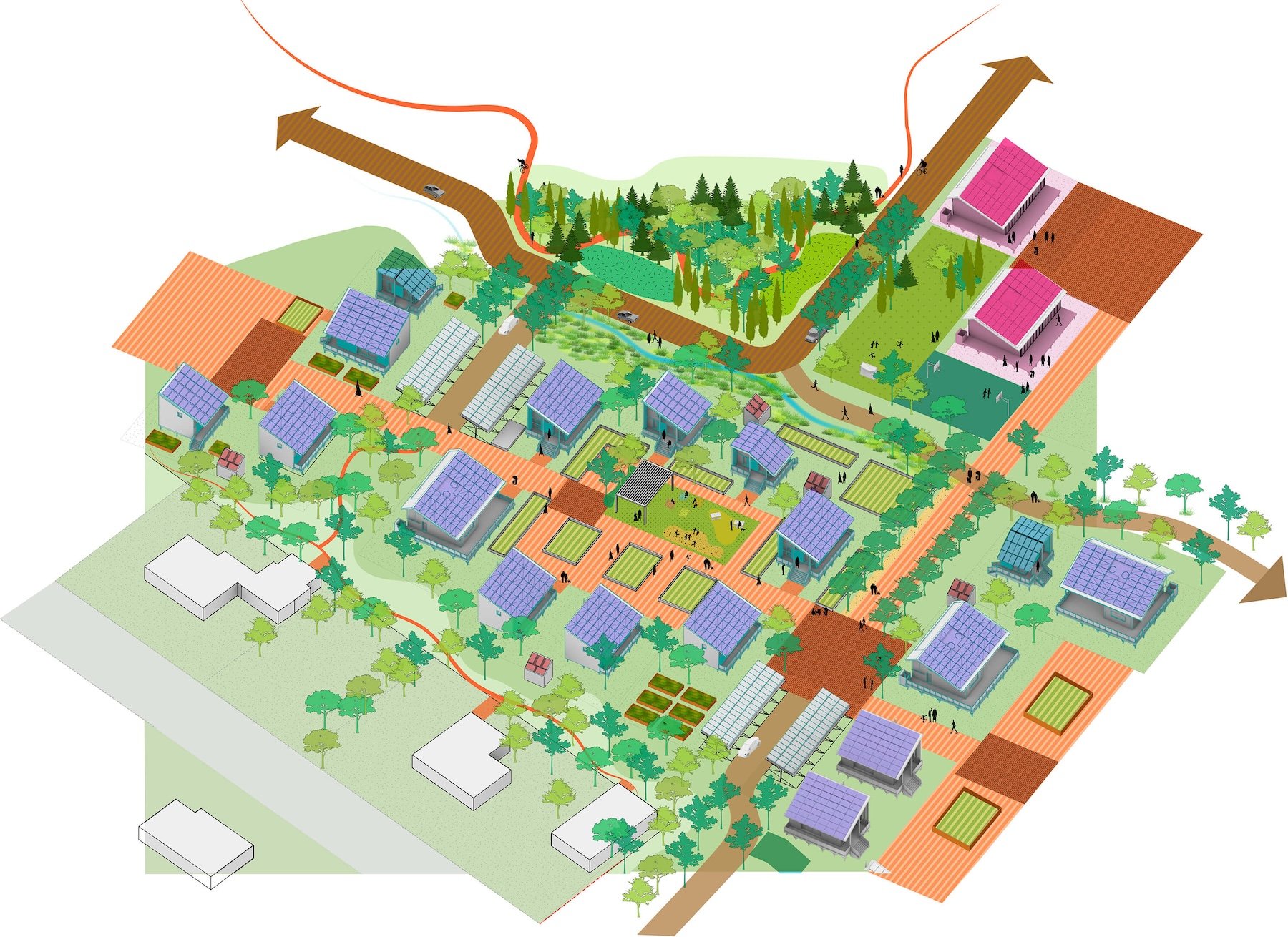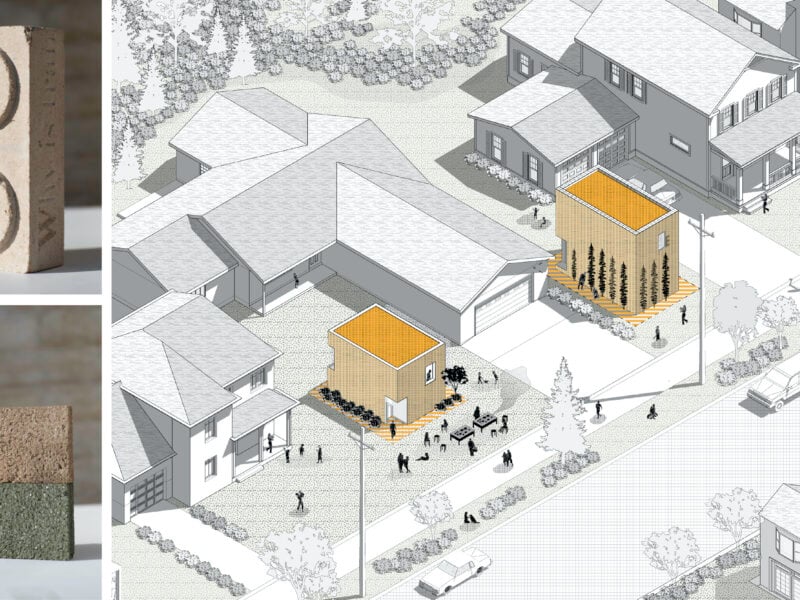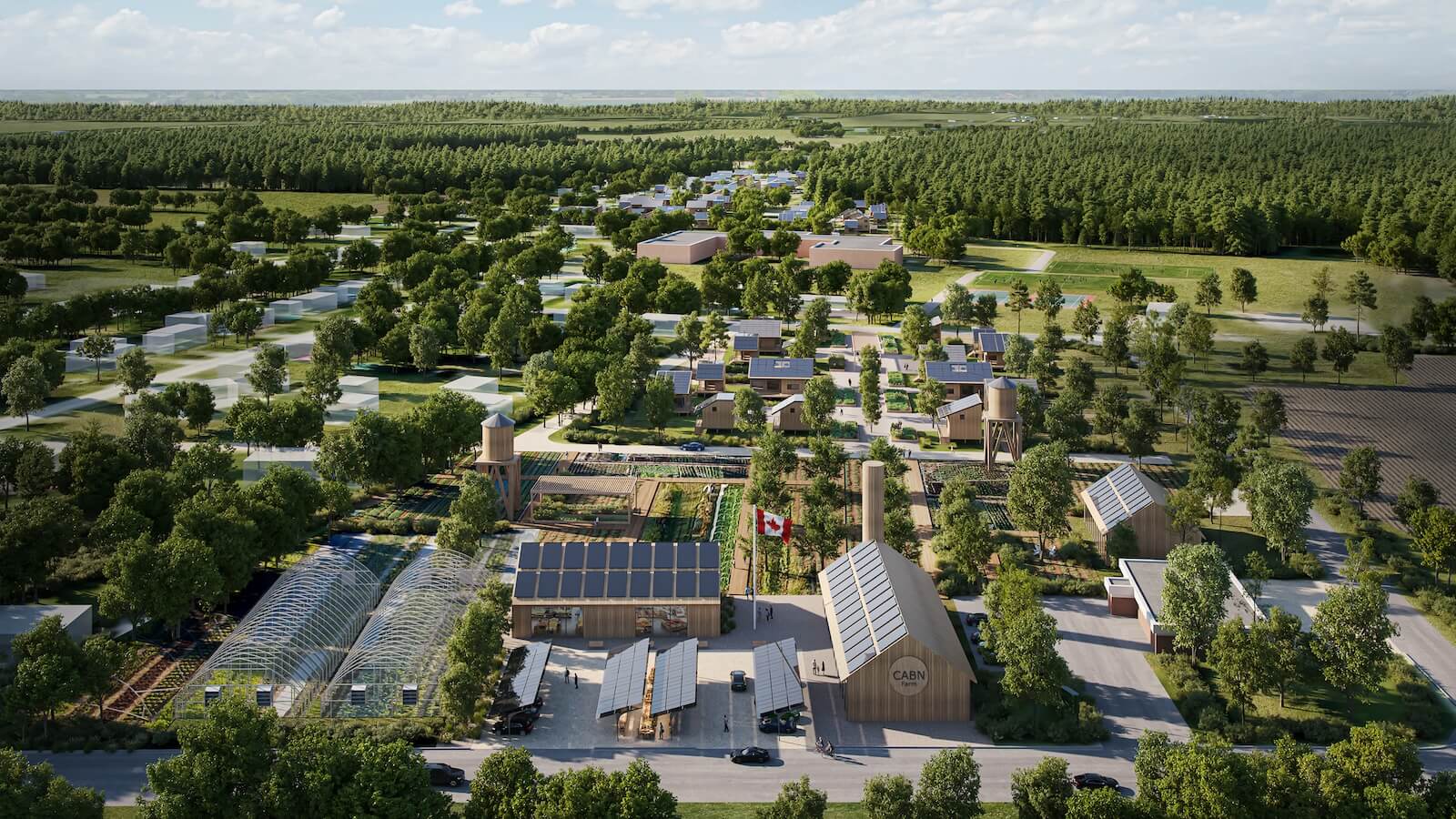
How do you design a tightly knit climate-conscious community from scratch? This ambitious plan addresses the housing shortage affecting an Eastern Ontario township — and demonstrates that development can be symbiotic with nature by combining off-grid housing with regenerative land-use planning. Modelled on ant colonies and informed by studies showing that social unity thrives in groups of 150 people or fewer, CABN and B+H Biomimicry’s concept also foregrounds the importance of interconnectedness.
The site’s adjacency to a dense forest and wetland presented an opportunity to take a progressive approach: The scheme preserves more than 41 hectares of forest, integrates peatland restoration and improves flood control, storm dissipation and carbon storage. While using the “living story” approach to assess the site’s natural tendencies, limitations and capacities, CABN and B+H also embraced a humanistic focus; the homes’ arrange- ment enhances visual connectivity to biodiversity by 90 per cent — a factor understood to boost physical and mental health. While the site is near a major thoroughfare, self-sufficiency guides the plan, which includes spaces for food production, a solar-powered energy system, decentralized water and waste management, and a flood-resilient landscape. A continuous pedestrian spine leads seamlessly to all units, amenities and open spaces, while bike paths and hiking trails connect the built environment and the surrounding forest.
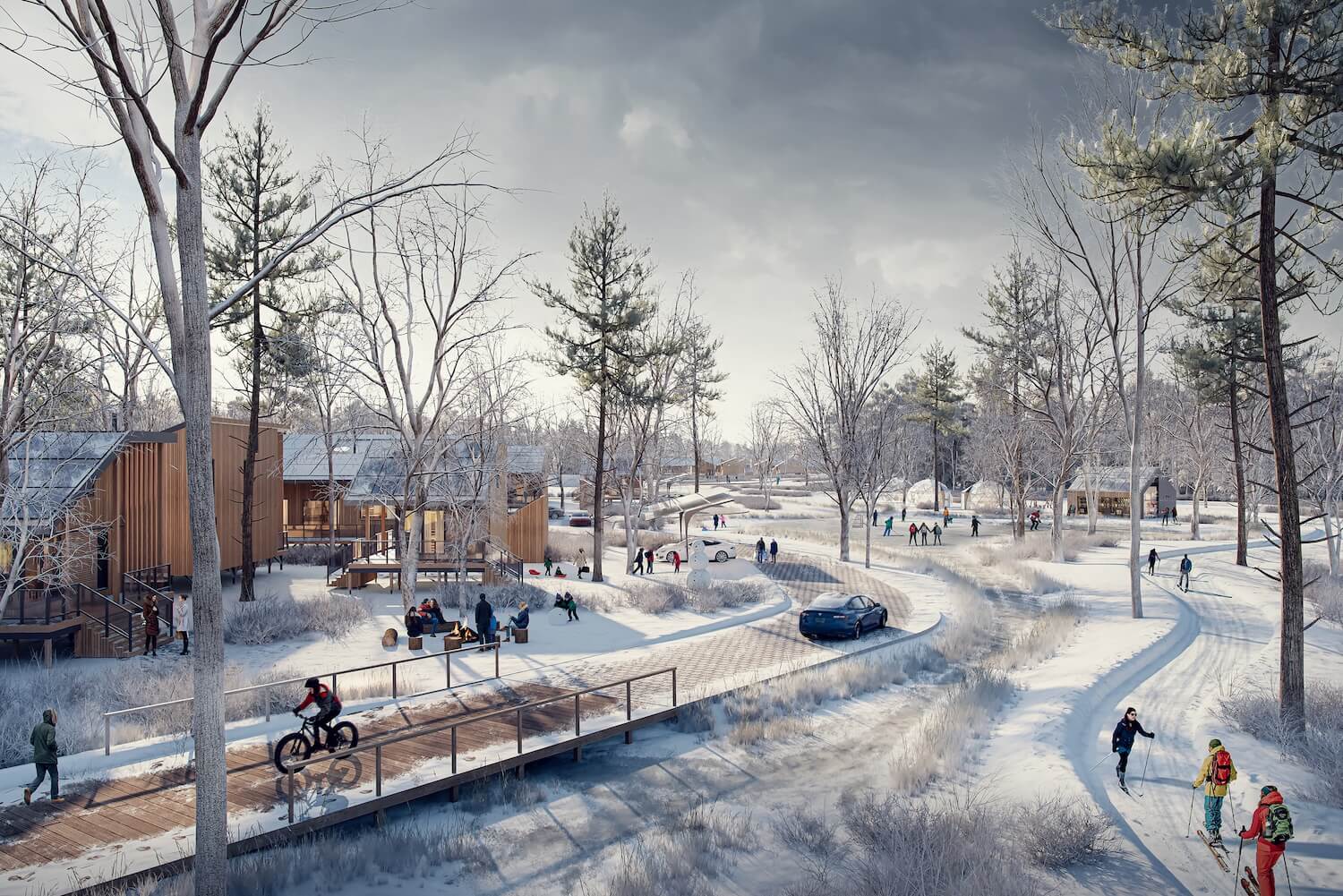
As would be expected of such a development, the homes’ designs prioritize passive principles that make them comfortable year-round. Rapid, scalable and energy-efficient, they are prefabricated with a carbon-negative building envelope featuring cross-laminated timber (CLT) walls and triple-glazed windows and doors. CABN incorporates thermal bridge–free components, airtight construction, electric systems with heat exchange ventilation and on-site renewable energy generation to further reduce its carbon footprint. In marrying energy-efficient architecture with a master plan that takes into account everything from social cohesion to environmental stewardship, Augusta Township CABN charts a new path.
Team: Jackson Wyatt, Jamie Miller, Alex Kelly.
Modelled on ant colonies, CABN and B+H Biomimicry’s concept foregrounds the importance of interconnectedness.

